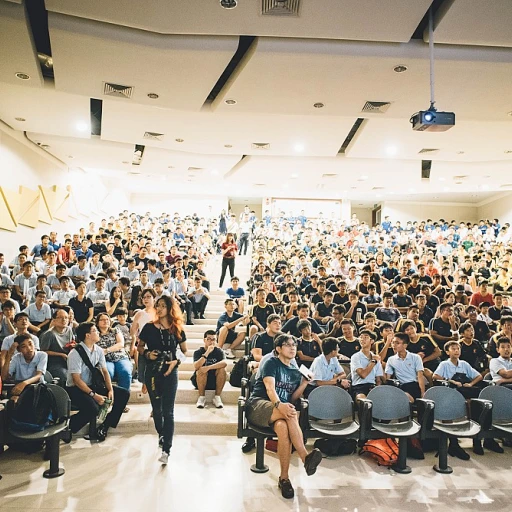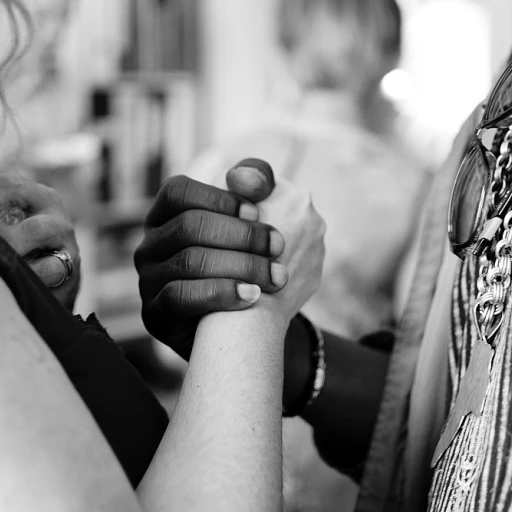
The Importance of DEI Holidays
Recognizing the Diversity in Celebrations
The inclusion of Diversity, Equity, and Inclusion (DEI) holidays in the workplace has become increasingly important for fostering a culture of understanding and respect. These observances, including the celebration of Black History Month, Native American Heritage Month, and International Women’s Day, not only acknowledge the rich tapestry of cultural traditions but also create opportunities for meaningful engagement among employees.
By integrating a DEI calendar that highlights significant historical and cultural events, companies demonstrate their commitment to inclusivity. This practice helps in raising awareness about various cultures and encourages discussions on diverse heritages. For instance, the recognition of Black History Month in February and Native American Heritage Month in November goes beyond token gestures. It prompts year-round education and reflection on the contributions and struggles faced by these communities.
Encouraging Participation and Education
When organizations recognize and celebrate these DEI holidays, they provide employees with an opportunity to learn and engage in activities that cultivate a better understanding of different perspectives. This can include educational workshops, discussions, and events aligned with heritage months such as Women’s History Month in March and Hispanic Heritage Month from mid-September to mid-October. Such initiatives often lead to increased employee participation and satisfaction by making team members feel valued and included.
In recognizing DEI holidays, companies are also setting a precedent for promoting a supportive work environment. Observances like Mental Health Awareness Month in May and Pride Month in June highlight the need for ongoing dialogue and support systems within the workplace.
Consider these holiday implementations as part of a larger HR strategy focused on fostering trust and flexibility. The impact of such observances is not just immediate; it resonates throughout the year, reinforcing bonds among colleagues and contributing to a more cohesive organizational culture.Challenges in Implementing DEI Holidays
Barriers to Establishing Holiday Diversity
In recent times, many organizations in the United States aim to embrace diversity, equity, and inclusion (DEI) through various initiatives, including the recognition of DEI holidays. However, establishing these holidays within the workplace comes with its own set of challenges. Implementing DEI holidays such as Native American Heritage Month, Mental Health Awareness Month, and Black History Month often requires a shift in traditional organizational culture. Many companies are accustomed to observing conventional holidays like Independence Day in July or Christmas in December. DEI holidays may not have the same widespread recognition, making their integration more complex.- Cultural Sensitivity and Awareness: One significant hurdle is the lack of awareness or understanding of the importance of these observances. For instance, Black History Month in February highlights crucial societal contributions and history yet often lacks the same acknowledgment as more traditional long observances.
- Resistance to Change: There's sometimes resistance from both leadership and employees when changes to the existing holiday calendar are proposed. This resistance can stem from concerns about disrupting established traditions or perceived overload of holidays.
- Balancing the Calendar: Finding time to acknowledge additional DEI holidays like International Women’s Day in March or National Native American Heritage Day in November without overloading the calendar can be challenging. It requires careful planning and flexibility to effectively balance.
- Logistics and Communication: Companies also face logistical difficulties in planning diverse events, especially when incorporating international days of significance or multiple cultural heritages into the company calendar genuinely and effectively.
Role of HR Tech in Supporting DEI Initiatives
Harnessing HR Technology for Inclusive Holiday Observations
Integrating Diversity, Equity, and Inclusion (DEI) holidays in the workplace requires strategic planning and support. HR technology can play a critical role in this process, ensuring that a diverse array of cultural observances, such as Women's History Month in March, Native American Heritage Month in November, and Black History Month in February, are recognized and celebrated effectively.
One significant way HR tech assists in this endeavor is through calendar integrations. These tools can consolidate DEI holidays into a comprehensive DEI calendar, providing reminders and descriptions of each event to highlight their significance. This helps to maintain awareness throughout the year, ensuring that every heritage month and national day receives the attention it deserves.
Furthermore, HR platforms can offer communication tools to educate employees about the history behind each observance, such as the international day of remembrance for important historical events. This promotes cultural literacy and empathy among staff members, encouraging participation and engagement.
Additionally, HR tech facilitates anonymous feedback collection from employees about their experiences and suggestions regarding holiday observances. This empowers companies to refine their approaches, crafting more inclusive celebrations that better meet the needs of a diverse workforce.
Through HR technology, organizations are equipped to manage and celebrate long observances like Mental Health Awareness Month in May or Baha'i holidays in April. Such platforms afford a semblance of structure and flexibility that allows businesses to dynamically manage workforce engagement, catering to the annual cycle of awareness and celebration days.
In essence, leveraging HR technologies ensures that DEI initiatives are not just seasonal highlights, but an integral part of the organization's rhythm throughout each year. As DEI holidays become more prevalent, HR tech will continue to evolve, underscoring its indispensable role in fostering diversity and inclusiveness in the workplace.
Case Studies: Successful DEI Holiday Integration
Examining Real-World DEI Holiday Practices
Real-world examples serve as powerful testaments to the effective integration of DEI holidays in the workplace. Observing DEI holidays such as Black History Month, Women’s History Month in March, and Native American Heritage Month in November, various organizations across the United States have successfully incorporated these long observances into their annual schedules. An intentional approach in integrating these events can bolster employee engagement and foster a culture of inclusiveness.
In recent years, corporate environments in sectors such as tech and finance have set foundational examples. They have identified DEI holidays that align with their workforce's diverse backgrounds and instituted observance protocols to enhance overall awareness and participation. This goes beyond national days of awareness like Mental Health Day in October, encouraging a more profound acknowledgment of culture and history.
In one notable instance, a tech company in California developed a comprehensive DEI calendar featuring an array of events like Asian Pacific American Heritage Month in May and International Day of Tolerance in November. The company organized month-long educational activities, workshops, and heritage celebrations that resonated with its employees' interests and backgrounds.
Another successful example lies within the healthcare sector, where a diversity-focused institution recently integrated holidays such as Baha'i Naw-Ruz Day in March and the June Pride Month. They crafted events that were not only celebratory but educational, providing a platform for dialogues on diversity and inclusion.
These cases underscore the importance of listening to employee feedback. Companies that utilized surveys and feedback loops could better align holiday observances with the values and expectations of their workforce, thus enhancing participation rates. The positive response highlights an increased sense of belonging and employee satisfaction.
With an ever-changing national and international awareness landscape, organizations are continually evolving their DEI holiday recognition practices. These cases demonstrate a successful integration when organizations are mindful of their strategies and proactive in their execution. As we look towards the future, it's clear that adaptive approaches will be necessary to maintain sustainable and impactful DEI holiday initiatives.
Employee Feedback and Participation
Gathering Employee Experiences and Insights
The implementation of Diversity, Equity, and Inclusion (DEI) holidays in the workplace aims to foster a culture of recognition and respect for all individuals. Successful integration often hinges on how employees perceive and participate in these initiatives. Collecting feedback is pivotal to understanding the impact of DEI observances and enhancing future initiatives. To gauge the effectiveness of DEI holidays, companies can utilize a variety of feedback mechanisms:- Surveys and Polls: Immediately following DEI events, organizations can deploy surveys to capture employee sentiments. This could include questions about their awareness of events such as Black History Month in February, Native American Heritage Month in November, or Women's History Month in March.
- Focus Groups: Engaging in direct conversation with a diverse group of employees helps to uncover nuanced perspectives. Focus groups can delve into experiences of observing holidays such as International Day of Peace or national observances like Independence Day.
- Intranet Forums and Discussion Boards: Providing a digital platform for employees to share stories and ideas fosters a sense of community. Platforms can be tailored to explore topics associated with Mental Health Awareness Month in May, or the importance of national and international observances held throughout the year.
Future Trends in DEI Holiday Recognition
Emerging Trends in DEI Holiday Observance
The recognition of DEI holidays is continually evolving, reflecting broader societal changes and an increased focus on diversity, equity, and inclusion. As companies navigate these changes, several trends are becoming apparent:- Increased Customization of DEI Calendars: Organizations are moving towards creating comprehensive DEI calendars that go beyond traditional holidays and include a wide range of observances like Mental Health Awareness Month in October or Women’s History Month in March. This approach ensures that diverse groups feel acknowledged throughout the year, including key moments like Native American Heritage Month in November and Black History Month in February.
- Utilizing Technology for Better Engagement: Leveraging HR tech tools can be instrumental in not just identifying holidays, but also in planning and communicating these observances. As noted in previous sections, the role of technology is pivotal in streamlining the process and increasing employee engagement. HR platforms are integrating DEI specific modules to enhance awareness and engagement strategies.
- Greater Inclusivity in Holiday Listings: There's a growing trend to include international and lesser-known observances like the Baha’i holiday on March 21st or International Indigenous Peoples Day in August. These additions to the DEI calendar allow employees from diverse backgrounds to celebrate and educate their peers.
- Data-Driven Approaches to Recognition: Companies are beginning to use data analytics to understand employee participation trends, guiding decision-making on which holidays to highlight in future years. Feedback mechanisms also help refine which observances are most meaningful to staff, ensuring these are prioritized and celebrated.













